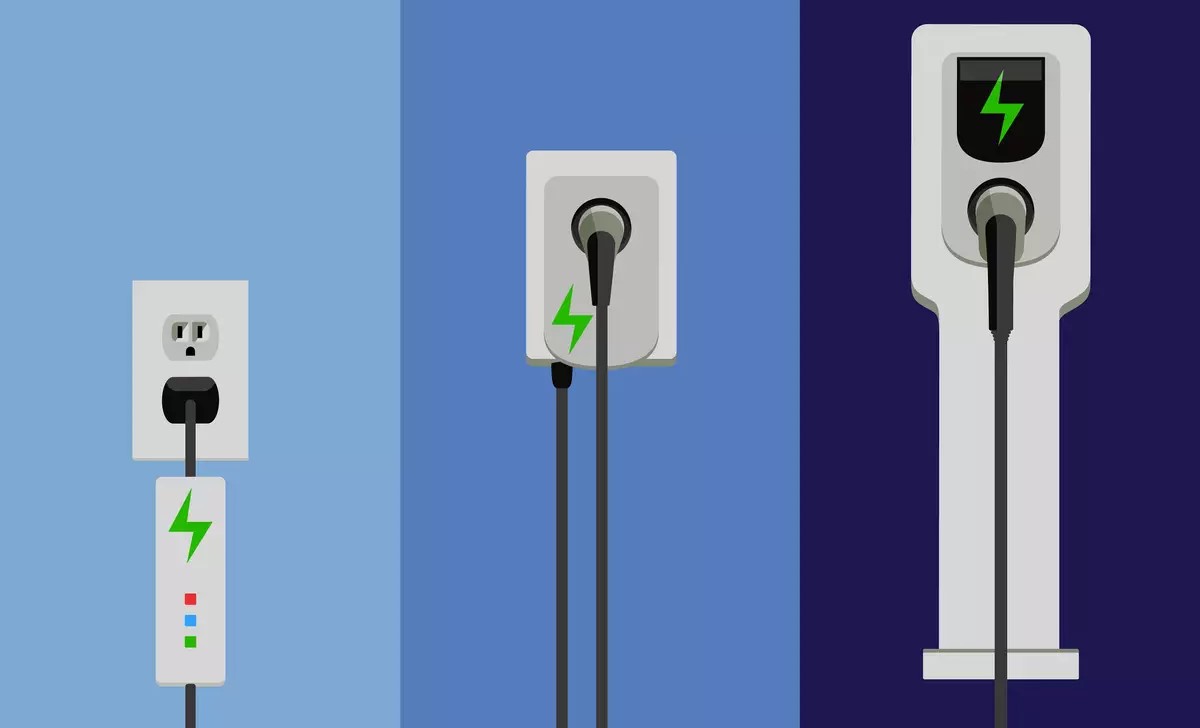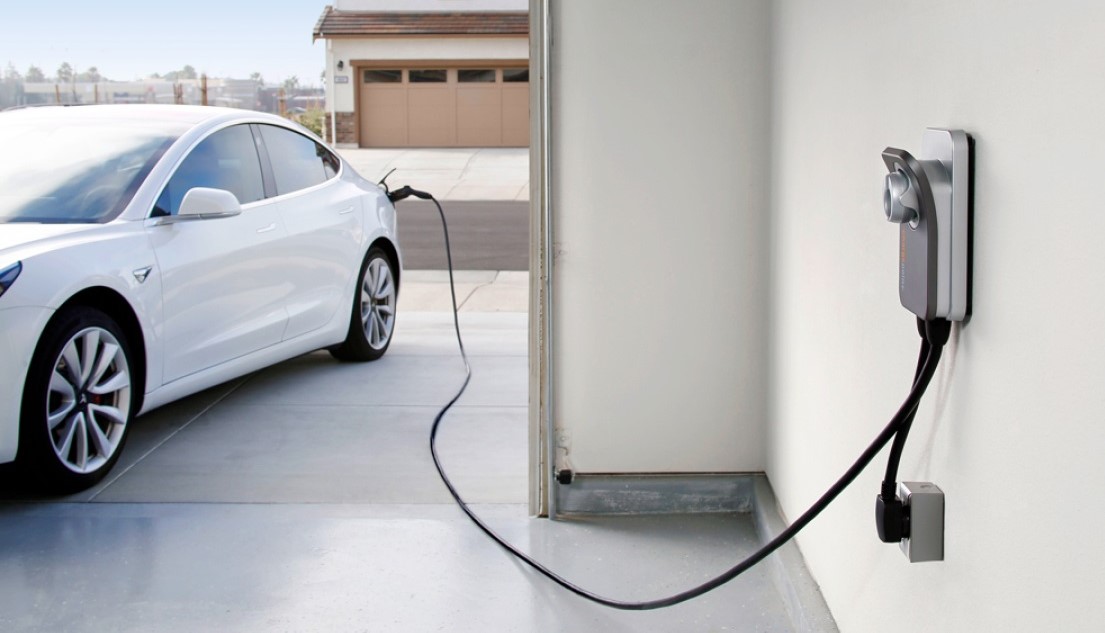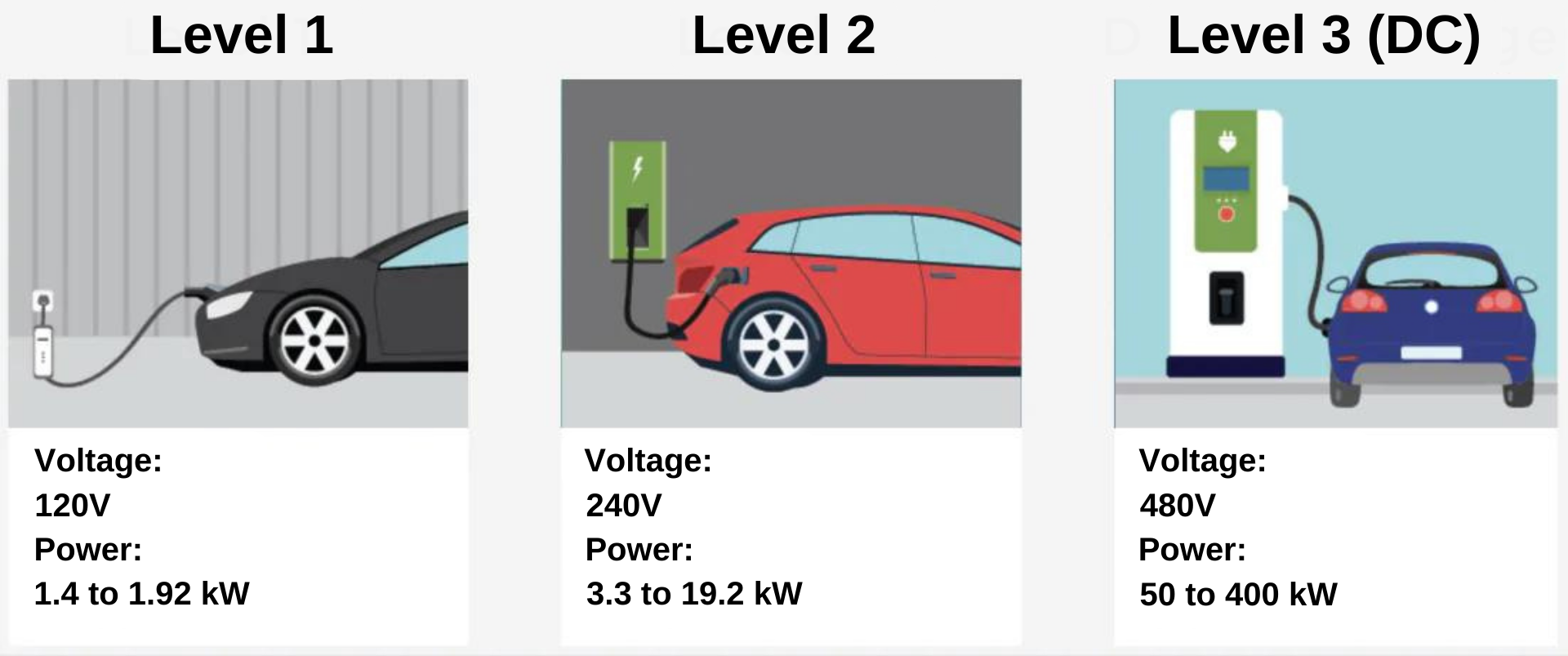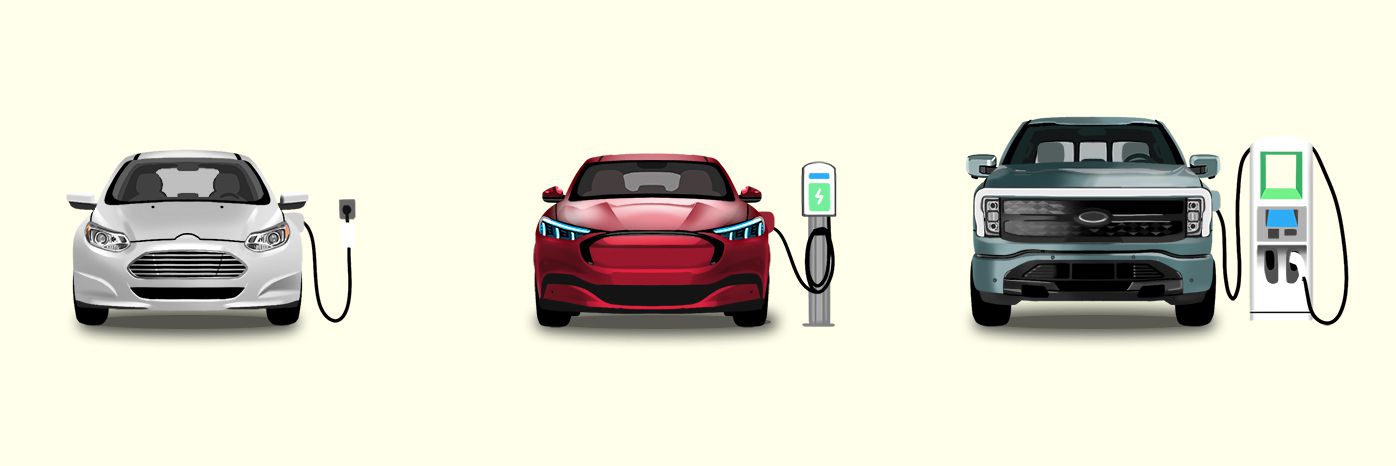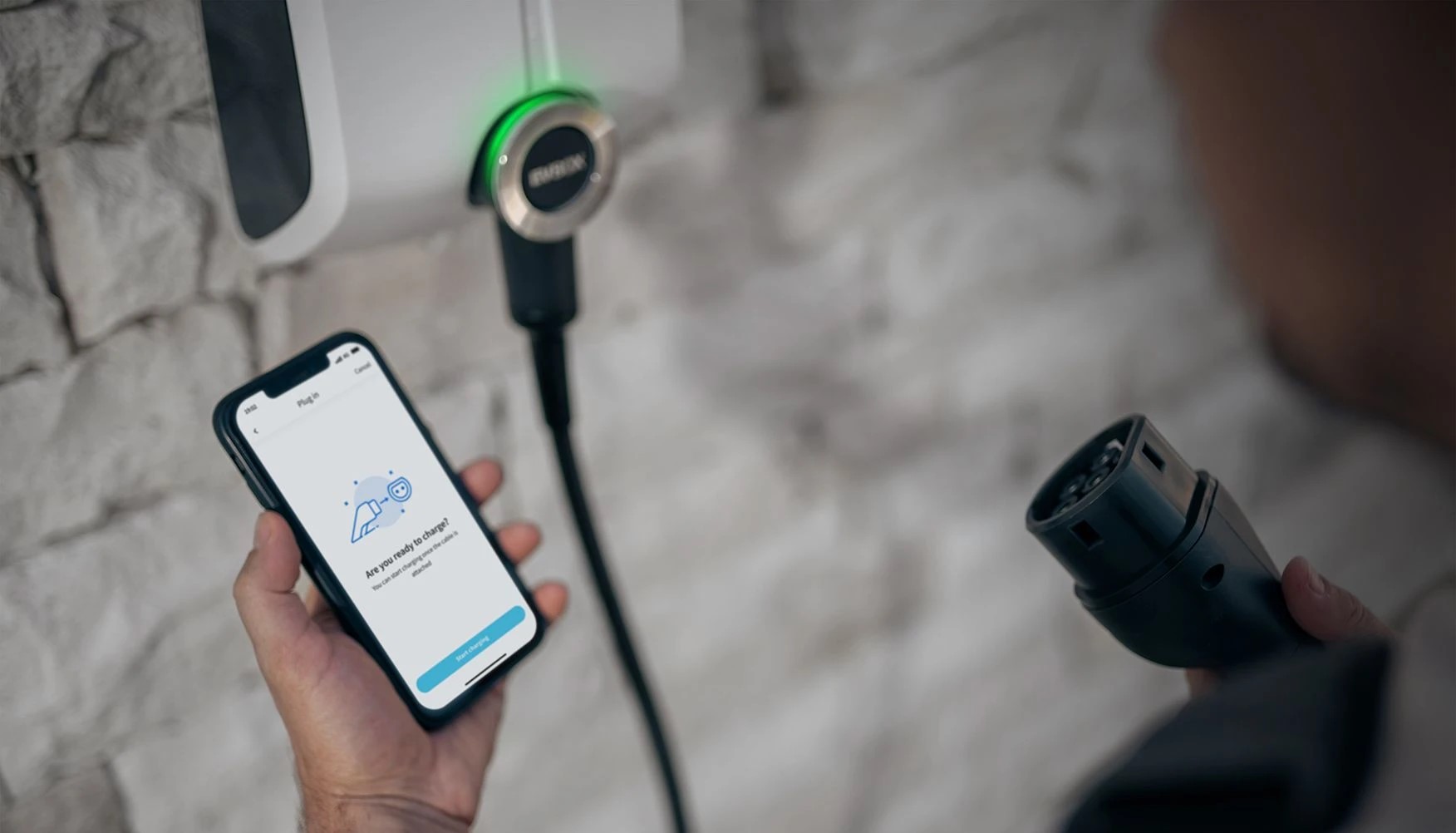Electric cars are actively being introduced into everyday life, becoming an environmentally friendly and economical alternative to traditional cars with internal combustion engines. However, the efficiency of using an electric vehicle largely depends on the correct choice of charging station.
A suitable charging station will not only provide comfort in the daily use of an electric car, but will also help optimize energy costs and extend the battery life. Let’s look at the main criteria and recommendations for choosing a charging station for an electric vehicle.
Why is it important to choose the right charging station
Choosing the right electric vehicle charging station can dramatically change your driving experience. Let’s look together at the key points that highlight the importance of this decision.
- Charging efficiency. The right charging station will help optimize the charging process, which in turn can reduce your energy costs. For example, home charging stations provide charging options at night when electricity costs are lower.
- Battery life. Choosing the right charging station power will help avoid overheating and overcharging the battery, and thereby extend the life of the electric vehicle battery.
- Fast charging. Choosing a charging station with the right power and fast charging technology can significantly reduce the time it takes to fully charge your battery. For example, fast charging stations can charge the battery to 80% in just 30-60 minutes.
- Ease of use. The presence of additional features such as remote control and monitoring via a mobile application makes the charging process convenient and simple.
Choosing the right charging station becomes an investment in the comfort and efficiency of using your electric vehicle, while maintaining optimal battery condition for a long time.
“Choosing an electric vehicle charging station is more than just charging, it’s an investment in the energy of the future.” – Octa Energy
Which charging station to choose: for home or for commercial purposes?
The choice between a commercial and home charging station depends on your personal circumstances, needs and business plans. Let’s consider in what cases which type of station to choose.
You should choose a home charging station if you:
- want to buy a station for your own needs;
- regularly use an electric car for everyday trips and have the opportunity to charge it at home;
- strive for savings and want to reduce the cost of refueling your car;
- value convenience and want to be able to charge your car at any time convenient for you, without wasting time searching for an available commercial electric charging station;
- prefer to have full control over the charging process, choosing the most suitable charging time and speed for you.
Choose a commercial charging station if:
- you want to generate additional income by offering fast charging services in high traffic areas or commercial parking lots;
- you have a business related to the automotive sector, and you want to expand the list of services and add an electric vehicle charging point;
- you aim to offer affordable and fast charging solutions to a large number of electric vehicle users in a specific area or commercial center;
- you have your own business, you want to attract a new target audience (electric car owners) and create a “green” image of the company;
- you plan to create infrastructure for electric vehicles in the city and invest in the development of a network of commercial charging stations.
Ultimately, your choice will depend on your individual use case, financial capabilities and long-term plans.
“Choosing between a home and commercial charging station isn’t just a charging decision. It’s a decision about how you invest energy in your life: in your home or electrical business development.” – Octa Energy
How to choose the required station power?
Electric vehicle charging stations are classified into three levels: Level 1, Level 2 and Level 3. Level 1 and 2 offer powers from 2.3 kW to 22 kW, providing alternating current (AC) charging. Level 3 charging stations offer much higher power, up to 400 kW, providing direct current (DC) charging, making the charging process significantly faster.
What is important when choosing power?
- Power that can be supplied to a station at a specific location. The idea is to ensure that the charging station does not require more than what your electrical grid can supply.
- Characteristics of an electric vehicle. Different electric vehicle models have different maximum charging speeds. For example, the Nissan Leaf can charge at up to 3.5 kW. Even if you connect it to a more powerful station, it will not charge faster. Therefore, find out what charging power is optimal for your model.
- Your needs. For commercial locations, it is better to choose the fastest charging possible so that owners can recharge their car even in a short time. In addition, accurate power calculations are very important. For public parking and commercial use – to efficiently distribute power between machines and not to overload the network, for home stations – to also avoid overloads in the network.
Why is this important?
If your electric car and other devices in the house use a lot of electricity at the same time, it can overload the grid, causing circuit breakers to trip and stop charging. It is necessary that the charging station’s power is within the limits of what your electrical network can handle.
If you plan to install several stations, choose a model that can charge two cars at the same time, dividing the power between them. This will help you efficiently use the available power and charge multiple cars without overloading the network.
Choosing the right charging station power not only helps you charge your electric vehicle efficiently, but also ensures charging safety and saves money.
Additional features worth paying attention to
- Class of protection against dust and moisture. The level of protection against dust and water is indicated by an IP code, for example IP65 or IP67. The first number shows the level of protection against dust, the second – against water. For example, the IP65 code means complete protection against dust and protection against jets of water. Selecting a charging station with a high protection class is important to ensure the safety and reliability of the device, especially if it is installed outdoors.
- Hull strength. An important feature for commercial charging stations. Since they will be installed in public places, it is necessary that the housing be made of metal or impact-resistant plastic. This will provide additional protection against vandals.
- Wi-Fi control and charging monitoring provide convenience and control over the charging process. With their help, you can track progress, set charging times and diagnose possible problems remotely, which greatly simplifies the use of the charging station.
- Number of ports. Having multiple ports allows you to charge multiple electric vehicles at the same time, which is especially useful for commercial stations. For households, this function is relevant if there are two electric cars in the family and both need to be recharged at night.
- Access control. Access control to the station can be provided using a mobile application or special RFID cards. This allows you to control who can use the station and at what time, providing increased security and control. Relevant for commercial stations or if a home station is installed in the parking lot of an apartment building.
- Accounting counter. The built-in meter provides electricity consumption data, which is useful for controlling costs. The function is most often used in commercial stations.
- Connector type. The connector type of the electric charging station must match the connector of your electric car. There are different types of connectors such as Type 1 (J1772), Type 2 (Mennekes), CCS, CHAdeMO, GB/T and Tesla Supercharger. Make sure the charging station is compatible with your vehicle to avoid additional costs for adapters or hardware incompatibility.
For a commercial charging station, it is better to choose universal connectors, such as Type 2 or Type 1. They are standard in most countries and are compatible with various car models. This will ensure greater accessibility of the station to potential users.
Maintenance and update
In addition to the characteristics of the device itself, it is also important to pay attention to the following points:
- Warranty period and service. Check what warranty terms the manufacturer offers and whether maintenance services are available in your area.
- Installation and installation. Find out whether installation is included in the price of the charging station and what requirements apply to the installation location.
- Software update. Regular software updates will help keep the station’s functionality up to date for a long time.
Octa is a developer and manufacturer of charging stations, so we control the quality of devices at every stage of production. Octa charging stations will provide you with reliability and an innovative approach, and our team will help with the selection of the required configuration, installation and connection of the station.
Don’t miss the opportunity to optimize your electric vehicle operating costs by choosing the right charging station. Leave a request on the website and discover the benefits of Octa charging stations.
“Choosing our charging stations is not just a step towards stability, it is a immersion in a world of innovation where efficiency and speed become part of your life.” – Octa Energy

